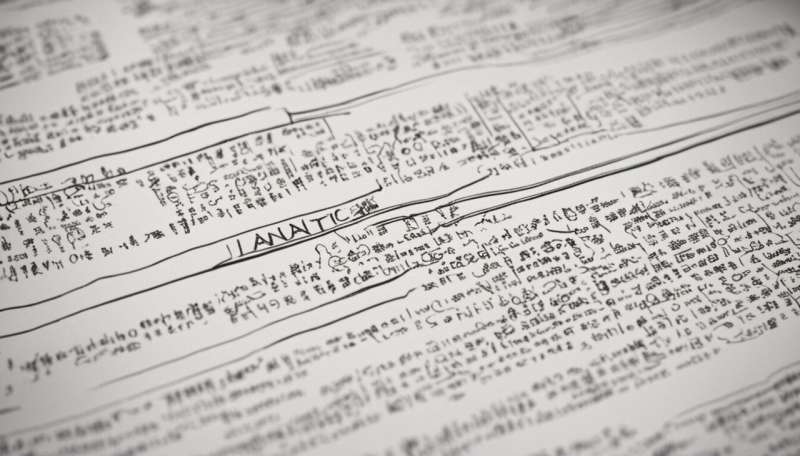Language puts ordinary people at a disadvantage in the criminal justice system

Language is pervasive throughout the criminal justice system. A textual chain follows a person from the moment they are arrested until their day in court, and it is all underpinned by meticulously drafted legislation. At every step, there are challenges faced by laypeople who find themselves in the linguistic webs of the justice system.
Anyone who reads a UK act of parliament, for example, is met with myriad linguistic complexities. Archaic formulae, complex prepositions, lengthy and embedded clauses abound in the pages of the law. Such language can render legal texts inaccessible to the everyday reader. Some argue (see Vijay Bhatia's chapter) that this is a deliberate ploy by the legal establishment to keep the non-expert at an arm's length.
But closer to the truth is the fact that legal language, like all language in all contexts, is the way it is because of its function and purpose. Those drafting laws must ensure enough precision and unambiguity so that the law can be applied, while also being flexible and inclusive enough to account for the unpredictability of human behaviour.
The cost of this linguistic balancing act, however, is increased complexity and the exclusion of the uninitiated. Legal language has long been in the crosshairs of The Plain English Campaign which argues for its simplification, claiming that "if we can't understand our rights, we have no rights".
It is not only written legal language that presents difficulties for the layperson. Once someone is arrested they go through a chain of communicative events, each one coloured by institutional language, and each one with implications for the next. It begins with the arresting officer reading the suspect their rights. In England and Wales, the police caution reads:
"You do not have to say anything. But, it may harm your defence if you do not mention when questioned something which you later rely on in court. Anything you do say may be given in evidence."
This may seem very familiar to many readers (perhaps due to their penchant for police dramas), but this short set of statements is linguistically complex. The strength of the verb "may"; what exactly constitutes "mentioning" or "relying", and what "questioning" is and when it will take place, are just some of the ambiguities that may be overlooked at first glance.
What the research says
Indeed, research has found that, although people claim to fully comprehend the caution, they are often incapable of demonstrating any understanding of it at all. Frances Rock has also written extensively on the language of cautioning and found that when police officers explain the caution to detainees in custody, there is substantial variation in the explanations offered. Some explanations add clarity, while others introduce even more puzzles.
This issue of comprehensibility is compounded, of course, when the detainee is not a native speaker of English.
The difficulties in understanding legal language is typically overcome by the hiring of legal representation. Peter Tiersma, in his seminal 1999 book Legal Language, noted that "the hope that every man can be his own lawyer, which has existed for centuries, is probably no more realistic than having people be their own doctor".
However, in the UK at least, cuts in legal aid mean that more people are representing themselves, removing the protection of a legal-language expert. Work by Tatiana Tkacukova has revealed the communicative struggles of these so-called "litigants in person" as they step into the courtroom arena of seasoned legal professionals.
Trained lawyers have developed finely-tuned cross-examination techniques, and all witnesses who take the stand, including the alleged victim or plaintiff, are likely to be subjected to gruelling cross-examination, characterised by coercive and controlling questioning. At best, witnesses might emerge from the courtroom feeling frustrated, and at worst victims may leave feeling victimised once again.
The work of forensic linguists has led to progress in some areas. For instance, it is long established that the cross-examination of alleged rape victims is often underpinned by societal preconceptions and prejudices which, when combined with rigorous questioning, are found to traumatise victims further. Recent reforms in England and Wales provide rape victims with the option to avoid "live" courtroom cross-examination and may go some way towards addressing this issue.
Further afield, an international group of linguists, psychologists, lawyers and interpreters have produced a set of guidelines for communicating rights to non-native speakers of English in Australia, England and Wales, and the US. These guidelines include recommendations for the wording and communication of cautions and rights to detainees, which aim to protect those already vulnerable from further problems of misunderstanding in the justice system.
Language will forever remain integral to our criminal justice system, and it will continue to disadvantage many who find themselves in the process. However, as the pool and remit of forensic linguists grows, there are greater opportunities to rebalance the linguistic inequalities of the legal system in favour of the layperson.
Provided by The Conversation
This article was originally published on The Conversation. Read the original article.![]()




















